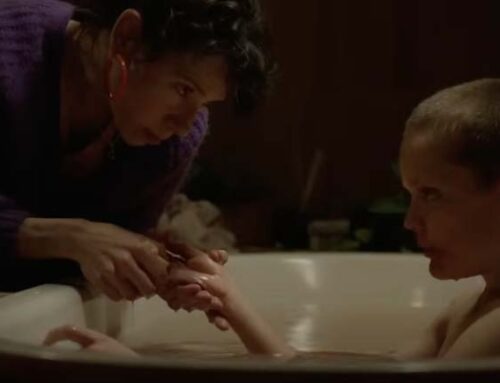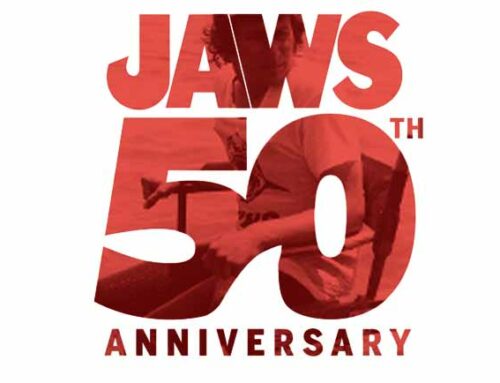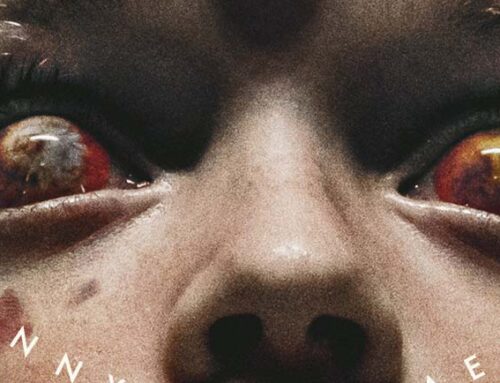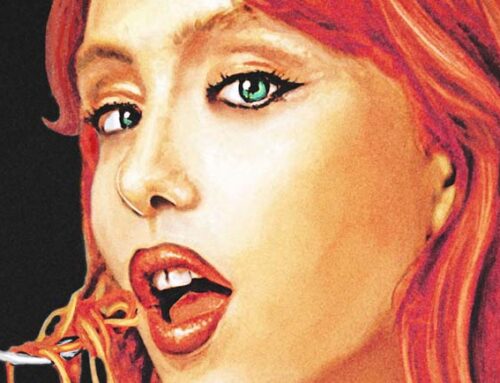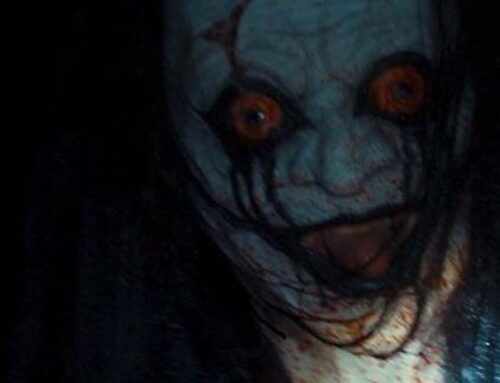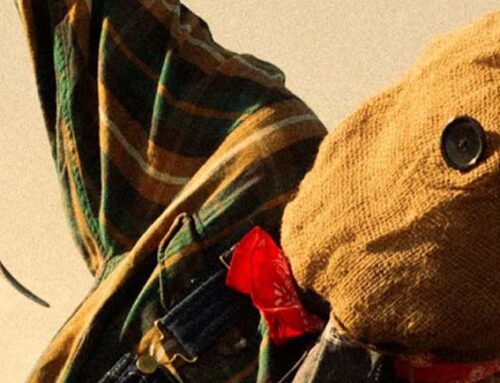Between major studio releases and VOD titles, there has been a wide variety of films for horror fanatics to pick from over the past few weeks. A few of those being: 20th Century Studios’ The Boogeyman, Shudder’s Brooklyn 45 and Hulu’s Jagged Mind. Another one worth mentioning is 101 Films and Trinity Creative Partnership’s The Gates, directed by Stephen Hall (Killer Night Shift). The Gates follows a serial killer who has been sentenced to death by electric chair in London in the 1890s, but in his final hours, he puts a curse on the prison he is in, and all of those in it. Adding to the intensity of the film is the score by composers Jason Lazarus (Skull Island, Are You Afraid of the Dark?) and Max Davidoff-Grey (The Witcher, Men Grieving) who experimented with everything from piercing high strings to a rusty old gate. The end result, a score that has brutality mixed with a softer touch at times to reflect the deeper theme of love and the things people do in the name of it. In the below exclusive interview Jason and Max fully dissect their The Gates score.
The Gates is now available on VOD. The Gates score is now available on digital platforms.

-How did you all become involved with The Gates?
[MAX] This was one of those fortunate coincidences – I go way back with one of the actors in the film, Hector, we went to high school together. He graciously put me forward for the gig. After chatting with both Steve (director) and Paul (producer), I wrote an initial theme as a kind of demo, or proof of concept. This actually ended up being the foundation for “Beyond the Veil” on the soundtrack. The piano refrain around 30s in was the first idea I sent over to the team. You then hear a reprise of this theme on bass clarinet later in the track. Thankfully they liked what I sent and kept me around!
[JASON] I became involved when I got a call from my buddy Max saying “I just booked horror film. I don’t really know much about horror films. Where do I start?” Max, being a close friend, knows I have an affection for horror, and I was thrilled to be asked to suggest some films to watch, scores to listen to, and consult on a general creative approach to Steve’s direction. Later on in the process I was asked to tackle some big cues in the third act of the film when everything is going off the rails, then eventually Max asked me to come on board as co- composer and we tag-teamed getting the score across the finish line.
-At what point did you begin working on the film? After the film was already completed or during pre-production?
[MAX] On this one I was brought on super early, which was a dream. After reading the script I started writing some initial ideas, and then continued developing themes as production sent me stills and dailies from the set. It was an inspiring process, and having this time at the beginning to experiment really allowed the score to blossom. It was great to sit with ideas for a while, weed out the bad ones, and fine-tune the stuff that was working.
[JASON] There was zero pre-production for me. Luckily, I was stepping into a tonal world Max had already well-established because it was full steam ahead by the time I came on board.
-What were your early conversations like with the director regarding the film’s musical direction?
[MAX] It’s funny, Steve keeps apologizing for all the elaborative notes he gave, or as he has puts it, making us “decode his mad comments”. We appreciate the concern, but all jokes aside we really admired that he had a very clear vision from the get go. There was a good balance – on one hand Steve gave us a lot of creative freedom to experiment and try things, and on the other hand he had a very strong sense of what he liked and didn’t like. Early on Steve shared some key influences which helped point us in the right direction. Some specific references to older films, like Drag Me to Hell, and then musically he was really into the Metallica track “The Unforgiven III”. It’s a fun challenge to figure out what exactly is resonating in a reference – sometimes it’s just one element or a subtle timbre thing you wouldn’t necessarily focus on. Luckily all three of us wanted the score to be as gnarly as possible, there were a lot of shared goals. It was a very productive collaboration and I think we’re all excited about the final result.
[JASON] The musical direction I most vividly remember is Steve excitedly yelling “More piercing high strings! The kind that make your butthole pucker!” He could not get enough of those.

-A major plot point in the film has to do with a serial killer getting electrocuted. Did you ever incorporate any sort of electronic noises into the score?
[MAX & JASON] We challenged ourselves to get as much mileage out of organic, acoustic sounds as possible. This meant going to town with processing orchestral instruments and other live recordings, sometimes mangling them unrecognizably. That being said, some very subtle synth and electronic elements were occasionally snuck in. We didn’t want to entirely exclude that sound world, but we were conscious to keep them out of the foreground. Electricity plays a major role in the plot, both with the electric chair as well as Fred and Emma’s atmosizer device, so we felt it was appropriate to have them play a part in the score, but kept them in more of a supporting role. Also, as a practicality, knowing there would be a lot of electricity in the sound design, specifically in the final act, we wanted the score to exist in a separate space to give both enough room to shine.
-What scene was the most difficult for you all to score? Why?
[MAX & JASON] The very ending of the opening sequence took quite a few tries to nail down. The early versions kept intensifying and intensifying into those final moments before cutting to black, but it was never feeling quite right. It wasn’t until we went in the complete opposite direction and got smaller and more intimate as we get closer and closer in on William that we started feeling something special. We were initially playing to the horror of the situation when what was really needed was to live in the tragedy and heartbreak underlying William’s actions.
-Out of all the instruments you used in The Gates, would you say you used the violin the most?
[MAX & JASON] The violin was definitely useful for us, there are some classic screechy violin textures in this score. But actually, it’s probably a fight between the cello and double bass for most game time. The cello provides so much in this score: some crucial melodic gestures, primarily for William’s theme, as well as sustained textures and effects. But also, some really aggressive percussive sounds like the ricochet slaps in “Noose”, and “Nothing”. We got some crazy sounds out of the double bass too: percussive, scraped, high and low, all kinds of things. The low rumbling taps at the end of “Sacrifice”, which sort of come to represent the afterlife and William’s presence, is actually originally a double bass.
–The Gates takes place in London in the 1890s. Did you use any instruments or sounds that were authentic to that time period?
We tried to keep the instrumentation true to the period for the most part. 19th century orchestral music was part of our reference repertoire, and we wanted to contribute towards the historical tone of the piece musically for sure. Our focus on getting the most out of organic sounds and instruments was in large part to maintain this aesthetic.
-How would you say The Gates score differs from other horror film scores out there?
We’d like to think our commitment to a more old-fashioned scoring approach in utilizing traditional character themes and motifs sets The Gates apart from other contemporary horror scores. This approach seems to have fallen out of vogue in favor of a stronger emphasis on texture, atmosphere and musical sound design. Granted, there is plenty of all that in this score, but we were very conscious to have a melodic theme for William, a theme for Fred and Emma, a theme for Lucian, a theme for Father Matthews, a theme for the atmoszier, and we put a lot of effort into utilizing this more classic approach in combination with a more contemporary atmospheric setting, appropriate considering that the push and pull between old-fashioned and cutting edge approaches and their eventual harmonic combination is a major theme of the film. This was our way of incorporating that concept into our approach.
-Are you all personally a horror film fan? If so, can you name a few of your favorite titles?
[MAX] Jason is a huge horror fan, which was a big part of why I asked him to join me in scoring The Gates. I’ve dabbled, but I have to be honest – I’m basically a huge wimp when it comes to horror, I’ve been known to throw myself onto the closest human to me when watching scary movies. That being said, I really do admire the best work in the genre – Hereditary and The Conjuring are probably my top two in recent years. It’s worth noting that my dad made me watch both The Exorcist and The Omen when I was pretty young, so these hold a special, spooky place in my heart.
[JASON] Yes, but it took me some time to recognize it. A few years ago I came the realization that a disproportionate amount of the recent films I had thoroughly enjoyed, as well as the upcoming movies I was excited to see, were all horror films. Robert Eggers’ The Witch is what really set things off for me. That movie is solidly cemented in my top 10 films of all time, not just horror. As Max already mentioned, Ari Aster’s Hereditary is another modern classic. David Mitchell’s It Follows and more recently Rose Glass’ Saint Maud and Zack Cregger’s Barbarian are all fantastic films. I thought Luca Guadagnino’s Suspiria remake was excellent. I’ll cap it here at contemporary films without delving into the classics otherwise this will quickly devolve into a laundry list…
-What types of other films are you looking to score in the future?
[MAX] I know we both really enjoy working on high intensity stuff, and have a deep affection for synths. It would be a dream to score an action packed sci-fi epic. A fun part of this job is trying new and unfamiliar styles, but yeah I’d love to get an opportunity like that some day. Something about finding a sonic palette to illustrate a futuristic and / or fictional world is super inspiring to me.
[JASON] Tacking onto what Max said, something with in-depth world building is incredibly alluring. A sci-fi epic, a cyber-punk action flick, a Neo-noir, something that gives you license to make bold statements and be super stylized. That being said, I find the prospect of scoring a really intimate and grounded drama, or a challenging documentary just as alluring. And of course, I would love to continue to explore horror. Pretty much anything with a great story and a passionate filmmaker I’m game for.

